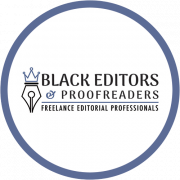The Problem with One-Stop-Shop Editing Services
It can seem like a great idea to have one editor conveniently perform developmental, line, and copy editing (and sometimes proofreading too) on your manuscript, but it doesn’t make a lot of sense.
First, let me ask you this:
Would you hire a detailer to fix your transmission? Would you go to a certified mechanic and ask him to wax and detail it?
No. You would hire a mechanic and then pay a detailer to polish it for you.
Editing works the same way. The mechanic is the developmental or substantive editor. The detailer is the copyeditor. It makes no sense, especially from a quality control standpoint, for one to do it all.

The first issue is that most people who claim to be experts at all levels of editing are not. It is more likely that they’ll be exceptional at one and then maybe good enough to get by on the others. While there are, of course, some individuals who can work well at all levels, they are not always easy to find. You are more than likely to end up with is someone who may be a great developmental editor but does not know rules of style as intimately as a dedicated copyeditor would. Or they may be an amazing copyeditor whose substantive editing skills don’t quite hit the mark.
Many one-stop-shop freelance editors are newbies or beginners who think the only way to make enough money to support themselves in their new business is by doing it all. They think they have to try to earn as much from each client as possible by providing all the services the client needs in-house. Their entire marketing strategy is to offer everything to cover all bases—kind of like a spiderweb aiming to catch anything that might fly by. Unlike Costco—who will sell you tires, appliances, electronics, clothes, and food all under one roof—the quality and results you get if you’re caught in that web cannot possibly be exceptional. Veteran editors tend to know better, which is why we strategically choose to focus only on offering the type(s) of editing in which we specialize.
On top of that, you may be forgetting the reason you hire an editor in the first place, which brings me to the second issue: the fact that it is incredibly difficult to spot your own writing errors. Editors are only human too; we experience the same difficulty with spotting our own errors. So, when you’re going back and forth with a developmental editor or line editor—they’re rewriting, rephrasing, reorganizing, etc.—they are repeatedly scrutinizing the same material. When it’s time for copyediting, naturally they are incapable of looking at it with fresh eyes—which is especially critical in the copyediting and proofreading stages. If a writer is unable to spot his or her own errors, why would you expect a one-stop-shop editor to be any different? They cannot possibly do nearly as spectacular a job as they would if they focused only on applying their special skills and expertise to your project before passing it on to the next expert or applying the finishing polish to it . . . with flair.
Written by Tia Ross. from The Nomadic Editor. Republished with permission.
